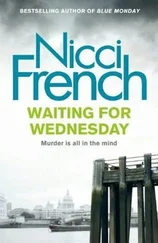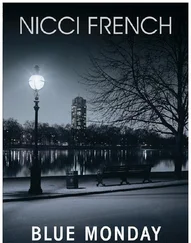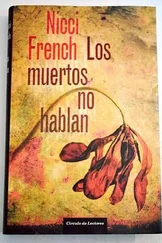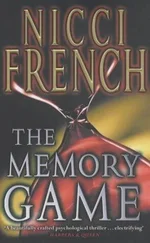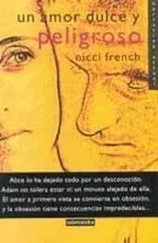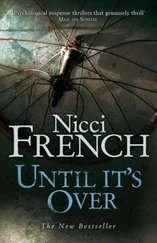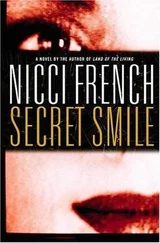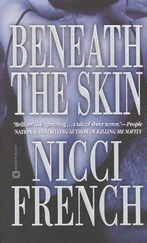It wasn’t like waking. It was too patchy and painful and messy. She woke in fragments and flashes: a dirty white ceiling, faces leaning over her, faces saying things she didn’t understand, the smell of soap and wetness on her body, being turned over, muttered conversations. Faces she recognized: Sandy, Sasha, Josef, Reuben, Jack, Karlsson, Olivia, Chloë, even Yvette. Some of them cried, some of them smiled. They came close and laid their hands on her shoulder, her face, and she couldn’t tell them that she knew they were there. They talked to her. They talked about her in whispers. Josef sang Ukrainian lullabies between sobs and Sasha read her poetry. Outside in the corridor she heard Chloë shouting at someone, her voice hoarse with fury, and she wished she could tell her angry, clumsy niece that it didn’t matter, nothing mattered so very much, but she was unable to move her lips. Inside, a part of her found something funny. The Frieda Klein reunion party. She couldn’t turn over. Sometimes she felt she was choking. Mostly she slept.
And then one day a voice said to her, ‘Frieda, can you hear me? Blink if you can hear.’ She blinked. ‘I’m going to count to three, then we’ll pull the tube out and you should cough and breathe. All right, one, two, three.’
Frieda felt like her insides were being pulled out through her mouth, as if she were vomiting them, and then she coughed and coughed.
‘That’s a good girl,’ said the voice.
‘I’m not a girl,’ Frieda said huskily, and she started to say that she wasn’t good but it didn’t feel worth the effort. There was more sleep, with occasional vague flashes. Was that Sasha in a chair by the bed reading a book?
There she was again, a hand on hers, looking down at her. This time she spoke to her, in her low and kindly voice: ‘Can you hear me, Frieda?’
She couldn’t hear what she said back. She leaned closer and closer until she was whispering in her ear. ‘Water,’ she said.
Sasha lifted her head so gently and tipped the glass. The water was warm and stale and delicious.
‘Frieda?’ Sasha said. ‘The doctor’s going to see you tomorrow. If you’re up to it.’
‘You said I could tell you.’
‘What?’
It was very hard to form the words. ‘When I needed to talk.’
She tried to find words, holding on to Sasha’s slim cool hand while the machine behind her bleeped.
‘It’s all right,’ said Sasha, kissing her cheek. ‘We can talk later.’
‘One day,’ said Frieda, sinking back beneath dark waters.
The next day was different. Frieda woke, and was properly awake. She sat up and saw the ward she was in: three beds opposite, and two between her and the window. A woman across the way was complaining to a nurse, and behind a screen next to her she could hear the voice of an old woman saying the same word – ‘teacher’ – over and over again. The day was grey and she felt awful. Her throat was ragged and almost the whole of her body ached. A trolley arrived with breakfast, some kind of porridge, milky tea, orange juice, all of it disgusting.
A nurse bustled across and said to Frieda, ‘He’s here.’
There, standing at the end of the bed, was a very distinguished-looking middle-aged man in a pin-striped suit and a bow tie. Through her bleary consciousness, Frieda managed to feel irritated. Why do consultants still wear bow ties even when they know it’s a cliché?
He smiled down at her. ‘How’s our phenomenon?’ he said.
It took an effort, but Frieda could speak now. Even to herself, she sounded hoarse and halting, like someone who had just learned to speak. ‘I don’t know what you mean.’
He sat on the edge of the bed, still smiling. ‘I’m Mr Khan,’ he said. ‘Your surgeon. I saved your life. But you saved it first. I’ve never seen anything like it. You have a medical degree, yes?’ Frieda nodded. ‘Even so. Quite remarkable.’
‘I’m sorry,’ said Frieda. ‘What’s remarkable?’
‘You don’t remember?’ said Mr Khan. Frieda shook her head. ‘It’s understandable in the circumstances. One of the stab wounds resulted in a penetrating trauma that sliced a femoral artery. As you clearly realized, you would have bled out in a minute or two. Before you passed out, you managed to apply a tourniquet to your own leg.’
‘I didn’t,’ said Frieda.
‘You were in a state of severe shock,’ said Mr Khan. ‘I have to say that tourniquets are no longer recommended. You risk necrotic damage but not in this case. We had you in theatre in under an hour.’ He was about to pat her leg but stopped himself. ‘You were lucky with the stab wounds to the back and abdomen, if I can put it like that. Neither of them struck an organ. But, as they say, it only takes one. We worried about your leg at first, but you’ll be fine. You may have to delay your triple-jump training until the Olympics after next, but apart from that …’
‘Mary Orton,’ said Frieda.
‘What?’
‘What about Mary Orton?’ said Frieda.
Mr Khan’s smile faded. ‘A friend of yours is here,’ he said. ‘He’ll answer any questions. If you’re strong enough, that is.’
‘Yes,’ said Frieda. ‘I am.’ She lay back on the pillow and saw Karlsson’s face appear above her. She thought of a cloud floating overhead, or a zeppelin. Maybe it was the painkillers.
‘You look terrible,’ she said.
‘We can do this another time,’ he said. ‘The nurse said you needed to rest.’
‘Now,’ said Frieda. ‘Mary Orton.’
Karlsson looked to the side, as if he were waiting for someone else to speak. ‘She was pronounced dead at the scene,’ he said. ‘I think she’d been dead for some time.’
‘No,’ said Frieda. ‘She was alive. I remember her eyes. They were moving.’
‘They said she’d lost a lot of blood. I’m so sorry.’
Frieda felt tears hot on her face. Karlsson reached for a tissue and dabbed them away.
‘We let her down,’ said Frieda. ‘We failed her.’
‘The paramedics had enough on their hands with you. The other two were beyond help.’
‘The other two?’
‘Mary Orton and Beth Kersey.’
‘What?’ said Frieda, trying to raise herself from the pillow. ‘What do you mean?’
‘Easy, easy,’ said Karlsson, as if he were soothing a restless child. ‘Don’t worry. There won’t be any trouble.’
‘What do you mean, trouble?’
‘There’s no problem at all,’ said Karlsson. ‘Quite the opposite. You’ll probably get a medal.’
‘What do you mean?’ said Frieda. ‘I don’t remember anything.’
‘You don’t?’
Frieda shook her head. She tried to think. It all seemed dim and far away.
‘I was stabbed first from behind,’ she said. ‘I didn’t even see her. Or at least – I barely remember. But there’s something. I was losing blood, a lot of blood, and I passed out. I remember hearing something. That’s all.’
‘I see this all the time,’ said Karlsson. ‘You’ll probably never recover the memory. But it was easy to reconstruct what happened when we saw the scene. Christ, there was blood everywhere. Sorry, you don’t need to hear this.’
‘But what happened?’
‘We can save this for later, Frieda.’
‘Now,’ said Frieda. ‘Tell me.’
‘All right, all right,’ said Karlsson. ‘It’s clear what must have happened. You acted out of self-preservation. After you were stabbed, you must have fought over the knife while you were bleeding yourself. You got hold of the knife and stabbed her in self-defence.’
‘How?’
‘What?’
‘How did I stab her?’
‘She died of blood loss from a laceration to her throat.’
‘I cut her throat.’
Читать дальше


